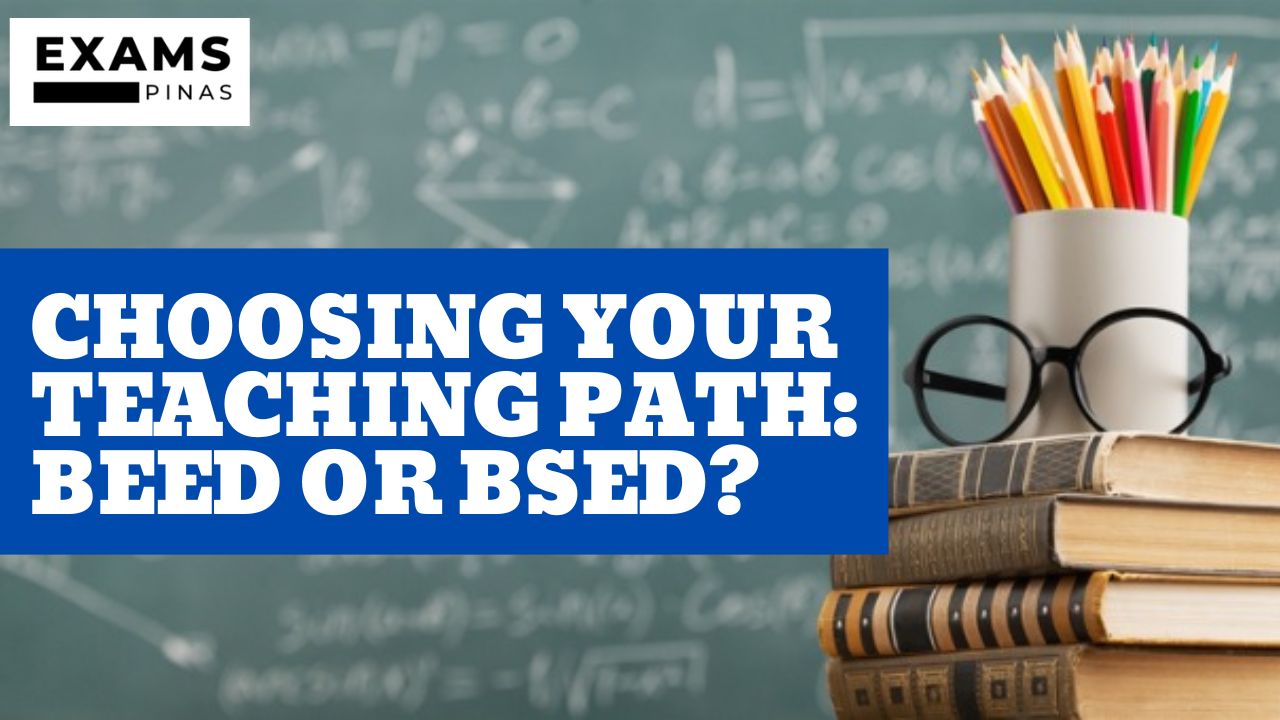Teaching is not just a profession; it’s a calling. Aspiring educators embark on a journey that begins with a crucial decision: choosing between two primary teaching programs in the Philippines – Bachelor of Elementary Education (BEED) and Bachelor of Secondary Education (BSED). Each path presents distinct opportunities and challenges. In this comprehensive guide, we will delve into the nuances of both programs, aiding you in making an informed decision about which teaching path aligns best with your aspirations.
Understanding BEED: Shaping the Foundation
What is BEED?
Bachelor of Elementary Education (BEED) is a program designed to equip future educators with the knowledge and skills necessary to teach in the elementary level, covering grades one through six. It focuses on pedagogical techniques, child psychology, and subject matter content for various elementary subjects.
Curriculum and Specializations
BEED programs typically encompass a broad spectrum of subjects including Mathematics, Science, English, Filipino, Social Studies, and Values Education. Some institutions offer specializations to further enhance teaching expertise in specific subjects.
Exploring BSED: Guiding Adolescents towards Growth
What is BSED?
Bachelor of Secondary Education (BSED) is tailored for those aspiring to teach in the secondary level, covering grades seven to twelve. This program delves deeper into subject matter content, pedagogy, and teaching methodologies suited for the adolescent age group.
Subject Specializations
BSED programs allow students to specialize in specific subjects such as Mathematics, Science, English, Filipino, Social Studies, and more. This specialization provides an in-depth understanding of the chosen subject, enabling educators to impart comprehensive knowledge to their students.
Comparing BEED and BSED: Key Considerations
Target Grade Level
- BEED: Focuses on elementary education, covering the foundational years of a child’s learning journey.
- BSED: Centers on secondary education, addressing the specific needs and challenges of adolescents.
Subject Depth
- BEED: Provides a well-rounded understanding of multiple subjects suitable for elementary education.
- BSED: Offers an in-depth knowledge of a chosen subject, preparing educators for specialized instruction.
Teaching Techniques
- BEED: Emphasizes foundational teaching methods, child development, and classroom management at the elementary level.
- BSED: Equips educators with advanced teaching strategies tailored for the diverse needs of adolescents.
Career Opportunities
- BEED: Graduates can teach in elementary schools, explore roles in curriculum development, or pursue specialized programs like Early Childhood Education.
- BSED: Opens doors to teaching positions in high schools, potential for subject specialization, and opportunities for advanced studies.
Making Your Decision: Personal Reflections and Aspirations
Choosing between BEED and BSED ultimately depends on your passion, strengths, and career aspirations. Consider the age group you are most drawn to, the subjects you excel in, and the level of specialization you envision in your teaching career.
Final Thoughts: Embracing Your Role as an Educator
Whether you choose BEED or BSED, remember that your role as an educator is invaluable. You have the power to shape minds, inspire futures, and leave a lasting impact on generations to come. Embrace your journey with passion, dedication, and a commitment to lifelong learning.
In conclusion, the choice between BEED and BSED is a pivotal step in your journey towards becoming an educator. Both paths hold immense value and offer unique opportunities to make a difference in the lives of students. Reflect on your strengths, aspirations, and the impact you wish to have on education, and let that guide you towards the path that resonates most with your calling.
For more information on the teaching profession in the Philippines, including the crucial role of licensure, explore The Role of the Licensure Examination for Teachers (LET) in the Philippines.

